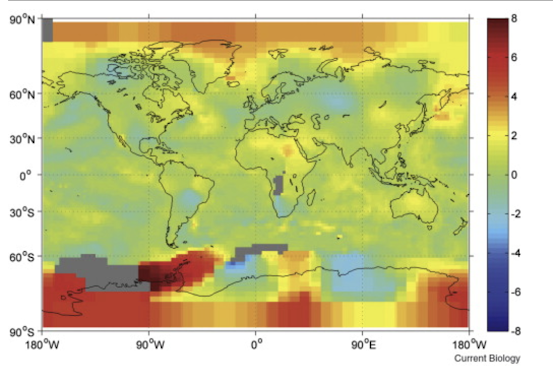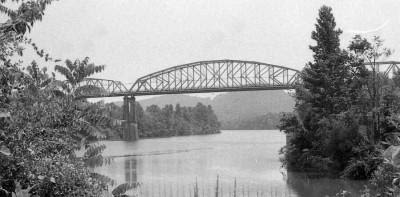Grand Challenge 3: Understanding the Impact of Global Change on Marine Ecosystems
Welcome to my first action project for my last STEAM course ever at GCE Lab School, Frontiers. In this unit, we learned about coral reefs, blue carbon, geoengineering, and all things regarding oceanography. For an internal project, we were slipt into groups and in those groups, we were assigned a human impact on the ocean topic. My group's topic was "protect the marine ecosystems". In my research on this topic, I learned about rising sea levels, oil pollution in oceans, and the degradation of marine ecosystems as a result of climate change. I also learned the importance of the health of the ocean as humans rely on the ocean for food, water, and jobs. This group project was a helpful tool as it prepared me for this action project. For this action project, we were assigned to write a scientific paper that focused on one of the grand challenges in Marine Ecosystems Ecology. Hope you enjoy my project!
Society has done a lot of damage to the environment and one of the consequences of those damages is global change. One of the eight Grand Challenges in Marine Ecosystems Ecology is “Understand the impact of global change on the marine ecosystems.” (Borja 2014). Global warming is affecting marine biological processes including marine ecosystems. These consequences also have an indirect impact on humans as it is threatening our food security. It is up to us to undo the damages we have already caused.
Furthermore 1, society has done a lot of damage to the environment. But how have these damages impacted marine ecosystems? Brierley & Kingsford answer this question with, “There is broad consensus that contemporary global climate change is real, and that much of the ongoing change is a direct result of human activity.” (2009). Some examples of these harmful human activities include burning fossil fuels, making cement, and changing land use. Payne states, “In a fisheries context, what often matters most is not necessarily how the climate or ocean abiotic conditions will change, but how the biological components of an ecosystem might respond to environmental change.” (2016). Benjamin Planque & Jean-Marc Fromentin would agree with both of the previous authors and say, “At the same time increasing pressure from exploitation and other human activities has been shown to impact exploited and non-exploited species and potentially modify ecosystem structure.” (2008). There is a direct consensus on this topic.
Direct impacts are important when discussing climate change and its effect on marine ecosystems, but what are some indirect effects? According to Brander, indirect effects act via ecosystem processes and changes in the production of food or abundance of competitors, predators, and pathogens. (2008). Meaning that there is a connection between ecosystem processes and the change in the production of food.
When discussing this issue it is important to look at the history to see how we got here, but the future must not be neglected. M.C. Kennicutt II & S.L. Chown states that “Predictions of future ice loss are dependent on ice sheet evolution models which can only be improved by more accurate measurement of ice sheet features, and variability in time and space.” (2008).
Figure 2. Spatial variability in surface warming.
In this example map showing surface warming, the temperature anomaly (°C) is color-coded for September 2008 compared to the 1951 to 1980 mean. Grey pixels indicate missing data.
To sum up everything that has been stated thus far, marine ecosystems are in danger due to climate change. The health of marine ecosystems is important to humans because humans rely on the oceans for jobs, food, and even oxygen. It is imperative that we take action to reverse climate change for the sake of our generation and for future generations to come.
Brander, Keith. “Impacts of Climate Change on Fisheries.” Journal of Marine Systems, Elsevier, 20 Feb. 2009, www.sciencedirect.com/science/article/abs/pii/S0924796309000931.
Brierley, Andrew S., and Michael J. Kingsford. “Impacts of Climate Change on Marine Organisms and Ecosystems.” Current Biology, Cell Press, 27 July 2009, www.sciencedirect.com/science/article/pii/S0960982209011816.
Kennicutt, M.C., et al. “A Roadmap for Antarctic and Southern Ocean Science for the next Two Decades and beyond: Antarctic Science.” Cambridge Core, Cambridge University Press, 18 Sept. 2014, www.cambridge.org/core/journals/antarctic-science/article/roadmap-for-antarctic-and-southern-ocean-science-for-the-next-two-decades-and-beyond/0AC6CADDCCD84DD4394015D13DB8F576.
Payne, Mark R., et al. “Uncertainties in Projecting Climate-Change Impacts in Marine Ecosystems.” OUP Academic, Oxford University Press, 17 Dec. 2015, academic.oup.com/icesjms/article/73/5/1272/2240686.
Planque, Benjamin, et al. “How Does Fishing Alter Marine Populations and Ecosystems Sensitivity to Climate?” Journal of Marine Systems, Elsevier, 21 Feb. 2009, www.sciencedirect.com/science/article/abs/pii/S0924796309000943.


Comments
Post a Comment